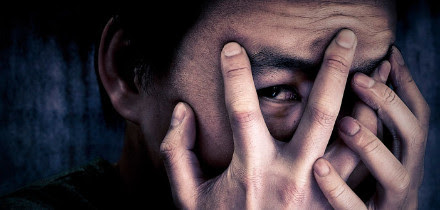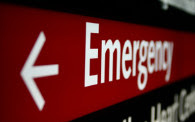IN THIS ISSUE
Tumultuous times can take a health toll
The grownup Rx for horrible headlines
Help kids put crises in context
Control what you can: make a disaster plan
Why ‘resilience’ matters
BY THE NUMBERS
300
Terrorism-related fatalities tallied around the globe by the New York Times in a single, recent deadly week.
692
Auto-related deaths per week in the U.S. in 2015, as reported by the National Highway Transportation Safety Administration (36,000 annual toll expressed as weekly figure)
22%
Percentage of respondents suffering significant negative effects after exposure in a British study of viewing of violence, including terrorism incidents.

Dear Reader,
Since Sept. 11, 2001, Americans have been subjected to a steady drumbeat of scary reports about terrorism. None more so than in recent weeks, with the roll call of tragedies from Dallas; San Bernardino, Calif.; Orlando; Nice and many others: in shopping malls, government offices, commuter trains, and night clubs.
Even the hardiest among us can be staggered. Our age of 24/7 coverage doesn’t help, and the Internet makes available the most gruesome events for streaming video.
We think we know how to cope — emotionally and mentally — with this onslaught, but do we really? Do you find you’re upset, sleepless, irritable, or depressed after violent episodes? Do you wonder how you and yours might protect yourselves better?
The health harms of stress are increasingly known, but experts have warned that terrorism and the fear it sows, too, can take a toll. For you and yours, new attention needs to be paid to mental health in our trying times.
Photos by: Tom Lin, Creative Commons; Dave Dunford, Creative Commons
The grownup Rx for horrible headlines

Terrorists aim not just at killing people, but at sowing widespread fear and anxiety far beyond those directly injured. So how do we prevent them from winning the psychological war in our own minds?
Witnesses to disaster can experience personal disruptions for a period of time, though experts say the trauma eases over time. Many more of us may experience these harms due to the intensity, reality, and frequency of media reports about terrorism and violence, and our consumption of them. You may not be totally aware why this makes you feel bad and what to do about it.
You may notice you’ve got: an unexplained headache, sleeplessness,
One of the key aims of terrorists and terrorism, experts say, is to make victims feel helpless. So one important way to counteract this harm is to act. It’s important, as good citizens, to stay informed. But consider limiting the amount of crisis coverage that you and your family members take in−this is especially important with your kids (see below). You also may want to check in with seniors in your life to ensure that, if their capacities are limited, that they don’t feel alone and haven’t become obsessive captives of broadcasts of bad news. You may listen to cable TV or the radio as background noise to activities in your home. Shut it off. Turn away from repetitive reports.
Carve out time to talk about troubling events with friends and family. Try to listen to each other, lots, and to deal with underlying emotions and feelings as well as logic in these key family conversations. Look for wise colleagues and contacts who can help put events in context and who won’t be unduly argumentative or disagreeable. Spirituality can offer a real solace, with important fellowship and sage thinking from the ages shared in your church, synagogue, or temple.
Now, some of you may be saying, pshaw to this whole discussion. So we all feel a little bad after horrific incidences of violence. It’s all normal, and, get over it, right? Experts have studied the long-term effects of terror, violence, and endemic fear in some societies long under duress, such as in Israel and Northern Ireland. The good news is that people are remarkably resilient.
But we need to brace ourselves, still, for unspeakable evil, and to plan and measure our responses. Experts caution that it can be detrimental to individuals and societies alike if we grow desensitized to ever escalating levels of terrorism, violence, and coverage of them. Try as we might to avoid it, we can fall prey to a negative confirmation bias, a term experts use to explain the human propensity to believe something then to look for evidence affirming that belief. Some of us may underestimate the challenges of terrorism. Burt we also can come to see the sick extremes of the few, and adopt an increasingly darker view of danger in the world, sadly answering malevolence against us with inhumanity.
Help kids cope with, put crises in context

This is a caution to all the grown-ups in the room: It’s more important than ever to spend time with our kids, to help them understand and to cope with awful news reports, and to monitor and restrict their exposure to violence, especially with an array of new technologies. Scholars at many places have documented why. Here’s some recent RAND Corp. information for parents about protecting kids from the harms of exposure to violence: click here.
Young people, experts say, are especially vulnerable to negative news and can be traumatized because they lack the life experience to put the information in appropriate context. This can leave them frightened, confused, insecure, anxious, sad, and depressed. Their normal exuberance may give way to unusual quiet and reserve. Parents, teachers, and other adults need to watch for these symptoms in youngsters, especially after calamitous events. Grown-ups need to help kids understand their feelings and emotions. These talks aren’t always easy. It can be hard to try to explain, for example, why important authority figures like police officers might kill people and why they might be killed. Youngsters need reassurance in tough times. They need routines, comfort, and to feel safe with their families.
Meantime, adults may need to step up their oversight of teens’ online lives, and their use of devices and new technologies, during these troubled times. A third of parents have told the Pew Research Center on the Internet, Science & Tech that they have been concerned with their youngsters’ use of the Internet or social media. Sadly, technological advances now allow teens, in particular, whole new avenues to get exposed to extremists, terrible events, and outsized violence. New apps and social media tools, for example, allow users easily to create instant videos that then can be streamed and viewed by millions of smart phones, electronic tablets, laptops, and desktop computers−e devices that have become as ubiquitous for contemporary youths as pencils and paper once were for their parents. Kids mostly are sharing fun, vanity videos. But streamed content also has taken audiences, especially young people, into the middle of public disturbances, fatal police shootings, and the bloody carnage of terror attacks. These flashes of harsh reality aren’t edited, or curated, and viewers can be exposed to them with minimal set-up or warning. They can be transmitted on what typically have been innocuous information channels, like Facebook. For all their bravado, few young people are prepared to see such unfiltered material, including the newly dead and maimed. Medical students in their 20s are known to faint, become nauseous, and to react negatively in other ways when first exposed to trauma; why do we think naïve teens, on their own, can handle ghastly sights? Adults should be ready to help older kids, just as with their younger brothers and sisters, process the horrible headlines with candid conversation and support. It’s clear that some of these content channels need to think about and develop, at minimum, some protective content guidelines; these organizations may need others’ help because they’re delving now into issues of social responsibility that may be far from their experience and purview.
Control what you can: make a disaster plan

It’s common sense, not Cassandric, and it’s a solid way to help you and yours gain a little bit more sense of control in an uncertain world: Spend a little time with your family and develop an emergency plan. It can be crucial to create this plan, not just, heaven’s forbid, in event of a terrorist incident or other man-made mayhem. You and yours should be prepared in case of blizzards, hurricanes, floods, earthquakes, fires, and an array of other natural disasters.
If you click on the links highlighted here, both the Red Cross and the federal Centers for Disease Control and Prevention offer tips on preparing emergency plans. These spell out good ideas about planning how family members will keep in contact when electricity, phones, cell phones may be out. You also may want to be in touch with your workplace and your kids’ schools so you can learn about and share information about how such places will respond in crisis. Do you know how pets will be cared for and fed in an emergency?
Yes, you may want to stock the house with safety items (flashlights, batteries, portable radios), and long-storing food and water supplies. Talk with your physician, too, if appropriate to ensure that you have adequate supplies of any needed medications, and to figure how any regular caregiving services that are needed by family members could go on in event of an emergency.
Don’t make this preparation a dire, dramatic deal. It will give you more peace of mind when done. And, if circumstances require, you will be feeling better just far ahead of many you will be−you won’t, for example, be worried sick about your partner or kids, or standing in long lines trying to buy life-saving supplies.
Why ‘resilience’ matters

Why do some child abuse victims grow up to be outstanding, high-achieving adults, while others lapse into lives of unending sadness and distress? Why do some victims bounce back from the worst calamity, and do so with admirable aplomb? Experts are learning more about resilience. It’s the characteristic that assists our response to stress, trauma, tragedy, and threat.
This trait varies in individuals. It appears it can be measured. Most key, studies suggest that there are ways to boost it in ways that can benefit individuals, businesses, and societies. It has its critics and detractors.
But especially when talking about terrorism, terrorists, and extreme outbursts of violence, buttressing resilience has become an increasingly important idea, and it’s worth considering some of the recommendations to do so:
- Stay connected with others and relish the support they can provide you, and return that quality.
- Understand and accept that change is constant.
- Increase your self-awareness, including your knowledge of how you react and your own emotions.
- Set goals, take actions. Don’t succumb to helplessness.
- Keep things in perspective. Try to be positive and hopeful.
HERE’S TO A HEALTHY 2016!
Sincerely,

Patrick Malone
Patrick Malone & Associates
